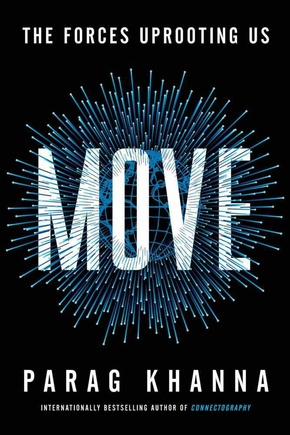Move - The Forces Uprooting Us
| Verlag | HarperCollins US |
| Auflage | 2021 |
| Seiten | 352 |
| Format | 15,2 x 22,8 x 2,2 cm |
| Trade Paperback | |
| Gewicht | 396 g |
| Artikeltyp | Englisches Buch |
| EAN | 9781982187675 |
| Bestell-Nr | 98218767UA |
A compelling look at the powerful global forces that will cause billions of us to move geographically over the next thirty years, ushering in an era of radical change.
In the 60,000 years since people began colonizing the continents, a recurring feature of human civilization has been mobility. History is brimming with seismic global events-pandemics and plagues, wars and genocides. Each time, after a great catastrophe, our instincts to seek physical security compel us to move. The map of humanity isn't settled-not now, not ever.
The last century provides continuing evidence that we are in the most dangerous experiment humanity has ever experienced. As climates change, pandemics arrive, and economies rise and fall, which areas will people flee from and where will they resettle? Which countries will accept or reject them? How will the billions alive today, and the billions coming, create the next map of human geography?
Now, global strategy advisor Parag Khan na expands on his TED Talks about mapping the future with this illuminating and authoritative vision of the next civilization. He explains how the past two major shifts-one agricultural and the other industrial-have led us to the cusp of the next one, which must be mobile and sustainable. Across the world, we must move people to where the resources are, and technologies to the people who need them. Igniting this accelerating mobility are five primary forces: demographic imbalances (young people flocking to new regions); economic dislocation (flight to where the jobs are); technological disruption; political upheaval; and climate change.
Move is a fascinating and enlightening look at the "climate" of migration, revealing the deep trends that will shape the grand economic and security scenarios of the future. Most importantly, it offers us a chance to identify our location on humanity's ever-changing map.

